Solo and The Scoundrel’s Journey
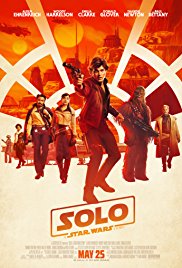 Joseph Campbell said of the hero, “When we quit thinking primarily about and our own self-preservation, we undergo a truly heroic transformation…”. In the original Star Wars trilogy, George Lucas embodied this transformation in both the character arc of his main hero, Luke Skywalker, as well as the smuggler and hunted man turned Rebel hero and General, Han Solo. Luke was the young kid with dreams and potential, a true empty vessel into which all our hopes and dreams can go, and Han was the pessimistic, galaxy-weary traveler more at home with those who understood the jaded frustration of life’s disappointing and often cruel realities.
Joseph Campbell said of the hero, “When we quit thinking primarily about and our own self-preservation, we undergo a truly heroic transformation…”. In the original Star Wars trilogy, George Lucas embodied this transformation in both the character arc of his main hero, Luke Skywalker, as well as the smuggler and hunted man turned Rebel hero and General, Han Solo. Luke was the young kid with dreams and potential, a true empty vessel into which all our hopes and dreams can go, and Han was the pessimistic, galaxy-weary traveler more at home with those who understood the jaded frustration of life’s disappointing and often cruel realities.
Han’s starting point in A New Hope begs us to ask the question, “How did Han become the cynical smuggler from Corellia we all know and love?” Solo: A Star Wars Story is the first feature film to gives us some answers, drawing on a long history of supplemental material from Legends and current canon, by taking us on a brand-new adventure in the Star Wars universe with a brand-new man, Alden Ehrenreich, inhabiting the role made famous by Harrison Ford. While the smiling, handsome-boy charm inherent in Solo’s persona remains, something hard-wired into the DNA of the character, gone is the sardonic tenor of his elder self, replaced by a grinning ambition and starry-eyed optimism more in-line with a farm boy from Tatooine than the captain of the Millenium Falcon.
The comparison between Luke’s story and Han’s may seem ridiculous on the first mention, however, director Ron Howard and writers Lawrence and Jonathan Kasdan plainly developed this move to be Han’s Campbell-esque hero’s origin story. Han is a young, brash, hopeful kid, and he even has an equally eye-catching and rosy counterpart in Emilia Clarke’s Qi’ra. Yet, when the two of them are separated in their attempt to escape their impoverished existence as a scrumrat under the callous auspices of Lady Proxima, Han’s heroic sojourn takes a wholly expected acute turn from the tale of a hero to the journey of a scoundrel.
In a delightful slant on the standard origin story, Solo is really about the development of a character who is universally loved, but in-universe is generally despised and looked down on. The major beats of Lucas’ interpretation of Campbell’s “Hero’s Journey” are in place, but their expected consequences are subverted. After a disappointing stint at the Imperial Academy, a story still only scantly detailed both in Legends material and current canon, Solo is desperately seeking a way out of Imperial Service and into the life he had always imagined. He meets a group of thieves and privateers, comprising of Beckett (Woody Harrelson), Val (Thandie Newton), and Rio Durant (voiced by Jon Favreau), stealing an Imperial ship to pull a heist. He meets Chewbacca (Joonas Suotamo) and the band is complete. After joining them for a heist that ultimately fails because of an interloping gang led by Enfys Nest (Erin Kellyman), Han and Chewie are roped into the fortunes of Harrelson’s Beckett and his partnership with criminal underboss Dryden Vos (Paul Bettany) and is reunited with Qi’ra, now Vos’ number one lieutenant in crime syndicate Crimson Dawn.

These characters essentially function as archetypes found in A New Hope, just given new characters to embody them and slightly reshuffled. Han is the optimistic hero. Chewie remains an ally, as does eventual compatriot Lando Calrissian. It could be argued, however, that Lando and L3, his chaotic droid co-pilot, are tricksters. Their antics add a measure of levity to a movie otherwise surprisingly void of major laughs. It was rather shocking for a movie once helmed by Phil Lord and Chris Miller, who did receive Executive Producer credits, to not even approach the humor of The Last Jedi. Regardless, Donald Glover’s performance as Lando is incredibly impressive, although the hype of a standalone movie featuring him seems preposterous given how good his limited screen time was. As it was in The Empire Strikes Back and Return of the Jedi, little bits of Lando make a movie stronger. A whole movie featuring the card-cheating rogue would do a major disservice to his character.
If those characters were allies, Qi’ra is an ally but fits the shapeshifter archetype in, arguably, the best performance in Solo. Her fearful and possibly abusive relationship with Vos gives her a depth of character both worthy of affection and caution. Her motives are always in question, and despite her love for Han at her core, who she once was is possibly forever lost to her transformation into a criminal. We’re not really sure if we can trust her but Han and we as the audience, want to. Moreover, she is a mirror for Han and the life he left behind. While he is free to pursue his dreams and ambitions, her scrap for survival has made her someone wholly different than what they both were at the beginning. However, the final twist is not betrayal, as is often the case with this type of character, but really a slight play on Han’s choice in A New Hope. She helps Han keep their coveted coaxium after Han and the crew literally go into a cave-like maw and go through their ordeal on Kessel. But, unlike Han, she does not return for the satisfying end. She abandons Han in favor of the criminal life that has made her into who she is. It’s as if Han took the reward, defeated the Death Star, but then took off to pay Jabba right away.
Likewise, my favorite twist on the normal archetype is Harrelson’s Beckett. He embodies the mentor role and is Han’s Obi-Wan Kenobi. He teaches him to “not trust anyone” and has a regard for the young Solo. He sees in Han the same things he was when Beckett was a much younger man and the great mercenary who took down Aurra Sing (deep nerd cut). However, true to the movie’s slanted take on the heroic formula, Beckett is out to preserve himself and turns on Han. It is only through Han’s own bit of clever maneuvering and Qi’ra’s help he is able to escape and keep the prized coaxium. Then, as if to further drive home Han’s development into a scoundrel and first shooter, instead of the villain taking out the mentor, Han learns from Beckett and takes him out. It’s like Luke stepping in to cut down Obi-Wan! At least, it would be if everything preceding Luke’s decision had been Obi-Wan teaching him faith in oneself, a good blaster, and a little luck.
While the movie ultimately suffers from some odd filmmaking choices–the muddily-filtered camera being one of the strangest–and some pacing issues in the final third, Solo is a fantastic way to tell Han’s story with a similar tone to the original trilogy while slanting it to reflect Han’s criminal company and miscreant past. Its ambitions cannot go far beyond its origin story limitations, something fellow Disney property Marvel is familiar with, it is a solid tale of a well-known character featuring some great performances and a potentially rich vein of new stories to mine from. Where Han’s story goes from here in new canon remains to be seen, but if the stories can riff on what made Star Wars great while always staying true to the smuggler with a heart of gold, this fan can get behind what Lucasfilm has and will accomplish.
Much of the content for this review discussing Han Solo’s “Scoundrel’s Journey” is expanded upon in Home One Radio’s review of Solo. You can find this episode at Home One Radio hosted by Reel World staff writer Josh Crabb and Reel World contributor Blaine Grimes.


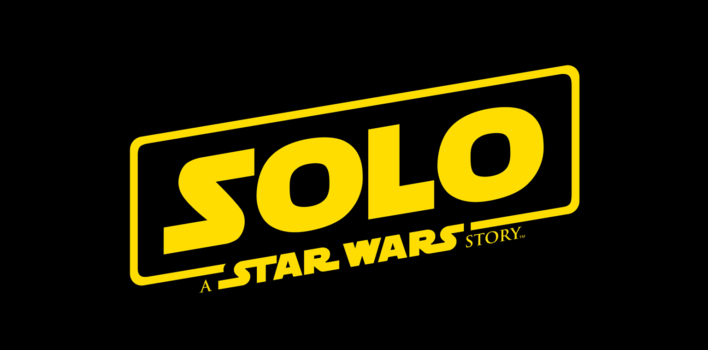
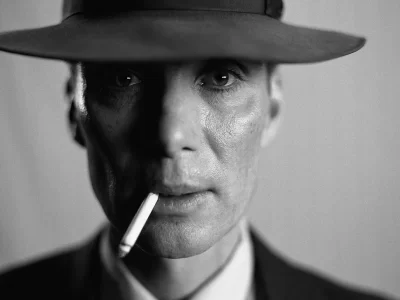
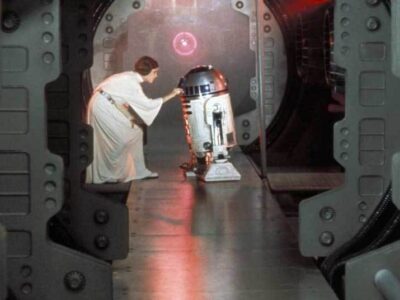
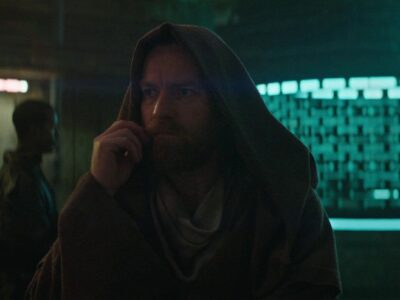


Pingback: #172 – Solo and the Vocal Minority | Reel World Theology